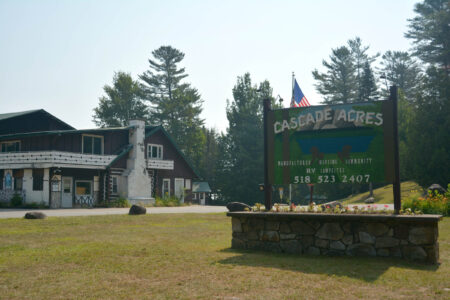As Canadian wildfire smoke makes another hazy upstate summer, Stefanik says northern nation fails to effectively manage forests
Rep. Elise Stefanik is accusing the Canadian government of failing to effectively manage its forests and the wildfires that have burned in the northern nation every summer season for years.
In a letter to Canadian Prime Minister Mark Carney, Stefanik and Buffalo-area Rep. Nick Langworthy said the smoke infiltration has become too severe of a health concern for New Yorkers.
“We write to you today on behalf of our constituents in New York, particularly in upstate communities near the Canadian border who are again dealing with unacceptable levels of smoke from Canadian wildfires,” the letter reads. “As the 2025 wildfire season intensifies we are concerned about the continued impact of this smoke on air quality, health and daily life.”
Wednesday, the day the letter was sent to the prime minister, the air quality index for Watertown hit 115, a moderate level of contamination in the air likely to cause some issues for those with breathing problems. For a few days in 2023 and 2024, Watertown and Jefferson County were recorded as hazardous, with AQI ratings between 300 and 500. In regular summer conditions, AQI ratings for rural upstate regions are closer to 40. In cold weather the ratings can drop to as low as 10 or 20.
The lawmakers point out that the fires are “not a new problem,” as they’ve caused similar smoky air and poor air quality alerts in New York in 2023 and 2024.
“The scale and severity of these fires continues to raise concerns about forest mismanagement and lack of effective deterrence of human-caused fire. We urge you to direct National Resources Canada and the Canadian Forest Service to improve wildfire prevention and response,” their letter reads. “We also encourage more direct communication and collaboration between agencies on both sides of the border.”
The Canadian wildfires have this year burned 16.5 million acres of land, and officials are expecting significant burning to continue into September.
Natural Resources Canada reported that 93% of the forest fires in the country in 2023 were caused by lightning strikes, and 7% were caused by human actions. The agency has said for years that it is unable to effectively conduct forest management efforts in many remote parts of the vast country, especially in the isolated and widely undeveloped northern territories.



